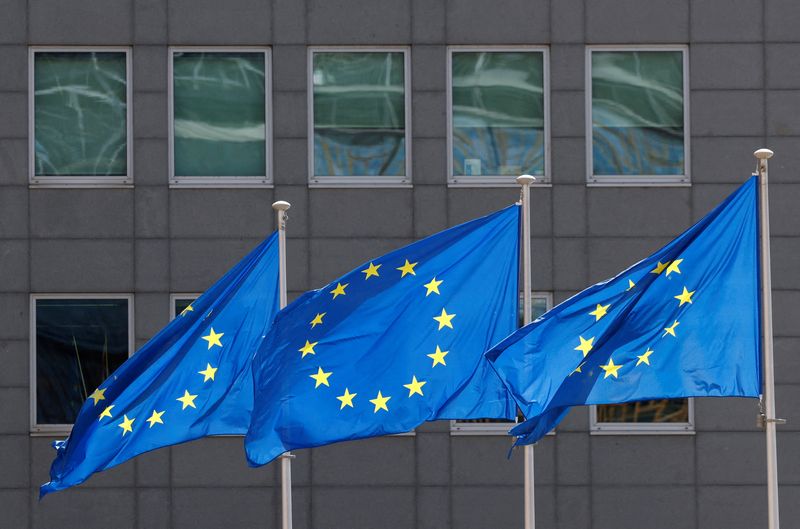By Jan Strupczewski
BRUSSELS (Reuters) - The European Commission gave Hungary a final month to address its concerns about the rule of law before asking European Union governments to suspend some of the funds Hungary is to get under the bloc's 2021-2027 budget.
The new deadline is part of an EU process, called the "conditionality mechanism", meant to protect the EU's financial interests against breaches of rule of law by an EU government. It is separate from other procedures over the rule of law that the EU has launched against Hungary.
The Commission believes EU money is at risk in Hungary because of what it says is corruption, which can take the form of tenders for EU funded projects in which only one bidder, usually linked to the ruling party, takes part.
The EU executive also has concerns about the independence of the judiciary, media and non-governmental organisations.
Hungarian Prime Minister Viktor Orban has in the past dismissed EU and U.S. concerns over corruption in Hungary, but top Hungarian officials have said over the past weeks Budapest was willing to work with the Commission to address the concerns.
Hungary offered this week to cut the number of public tenders in which only one bidder participates to 15% of the total. It has also offered to allow courts to order prosecutors to pursue cases even if prosecutors had decided not to and to make law-making in Hungary more transparent and inclusive.
Because of its concerns over EU budget money, the Commission launched the "conditionality mechanism" against Hungary in April. In the end, it could lead to the suspension of the 21 billion euros ($21.3 billion) for Hungary in the EU budget.
The Commission said on Friday it had mandated Budget Commissioner Johannes Hahn to inform Budapest of the measures that the EU executive intends to propose to EU governments if Hungary's remedial measures are not adequate.
"Hungary has now one month within which it can submit its observations and any additional information, in particular on the proportionality of the measures envisaged by the Commission," the EU executive arm said.
It added Hungary still had the opportunity to submit adequate remedial measures.
The funds affected are known as cohesion funds - which EU countries that are poorer than the EU average get to develop their infrastructure such as roads and bridges, water treatment plants or transportation.
A senior EU official, who asked not to be named, said the Commission's proposal to EU governments would most likely not concern all of the cohesion funds for Hungary, because it had to be proportional to the scale of the problem.
"But it will be a serious proposal, not a symbolic one," the official said.

The suspension of the cohesion funds, however, coming on top of 5.8 billion euros of recovery fund grants that are still frozen, would be a major blow to the Hungarian economy which is suffering from a weakening currency, rising costs of borrowing, a widening budget deficit and rampant inflation.
($1 = 0.9848 euros)